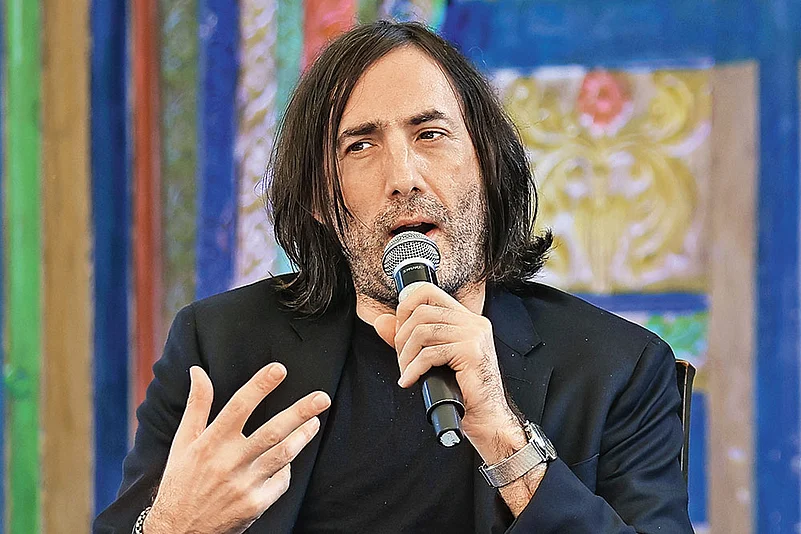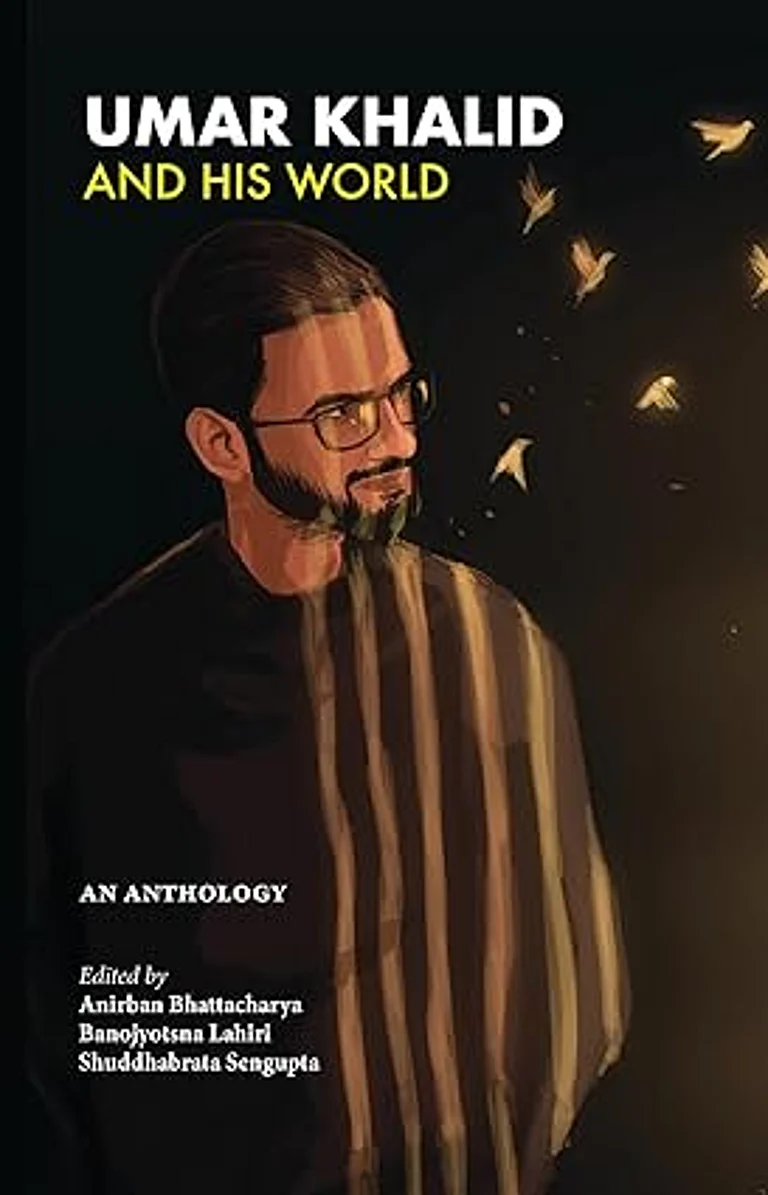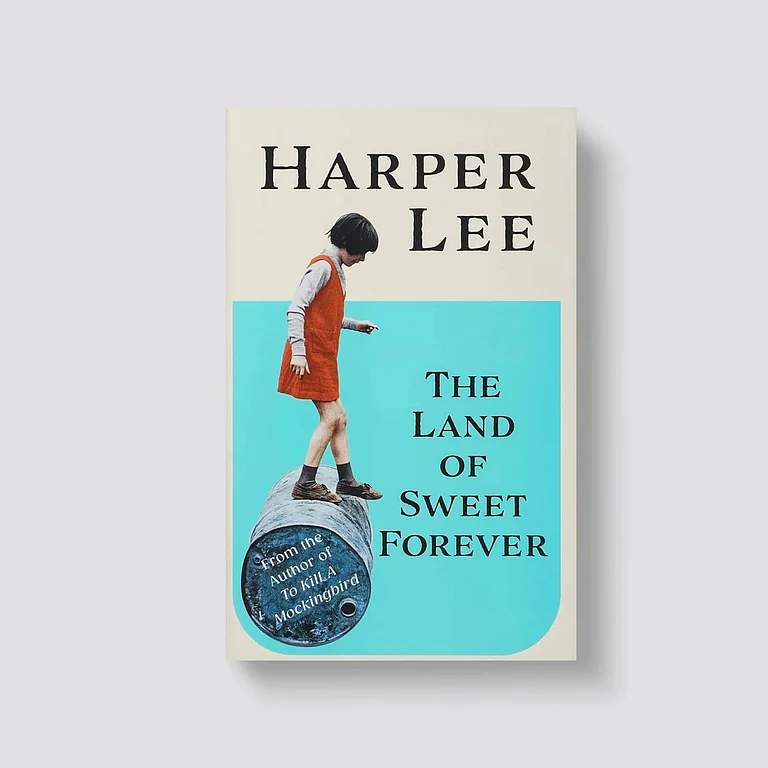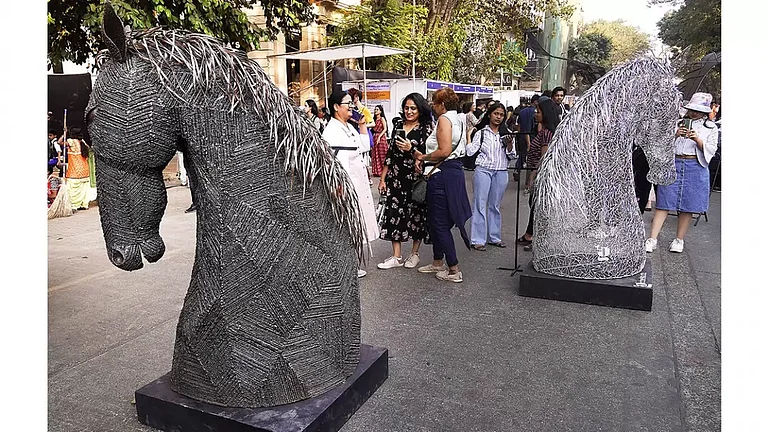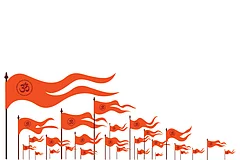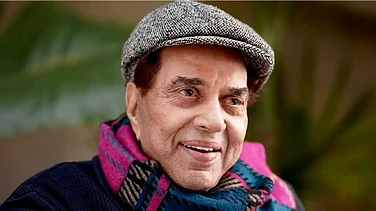Paul Lynch’s Prophet Song, which won the Booker Prize 2023, has been routinely called Orwellian or Atwoodesque and is even compared to the film Apocalypse Now. This brings out the insistence of publishing houses and critics to box authors into tight pigeonholes. Although allegedly dystopian, Prophet Song does much more than just speculate about an incumbent future. When asked about the inventive form of the novel, Lynch, in fact, disclaims the category. Lynch in conversation with Pranavi Sharma.
How do you bridge the gap between reality and unreality? Do you think dystopia, if you want to call it that, as a form was indispensable to make sense of the political reality around you?
I don’t think the book fits in the category of dystopia because a fiction where the events in the book are happening somewhere else in the world right now, ceases to be speculative. So, I think the dystopian handle is useful for publishers because it seems to be ridiculous, almost, that you would have this kind of an event in Ireland. There was an Irish journalist who wrote in The Guardian shortly after the book came out: “Well, events like this would never happen here because, in Ireland, we don’t have a far right”. Then a couple of weeks later, we saw that we had a far right. Then the same journalist wrote again about how we have a far right, and now we have to worry about leaders. I find that very amusing.
Apart from seducing the reader through form, to what extent do you think Irish English has carved its own vacancy? How do you make use of language in the book?
Well, if you think about the power of Irish literature on the world stage, one thing that’s fundamental to that power is that we were colonised by the British, but we colonised the language. So, a lot of the English spoken in Ireland is Hiberno-English. It’s English that takes on the forms and borrows grammatical structures in the Irish language, which is an inversion and you get an English that’s more lyrical, more musical, more energised.
For instance?
Let me quote you a beautiful example of local vernacular in Dublin that always makes me laugh. I heard this on the street one day and I’ve always remembered it. There was a lady speaking to a man and she said: “Were you lashing the sunbeds out of it?” In other words, we’re using the sunbeds too much. Sunbeds means that the guy was very tanned. There’s so much going on in that sentence that nobody’s going to understand that, and that’s really Dublin, that’s really Irish. So, Irish writers have always had the licence to play with that language, to push it, to bend it, to break it, if necessary. I’ve always taken liberties with the English language and I find that Irish writers have that licence to bend the language to our will to make it our own.
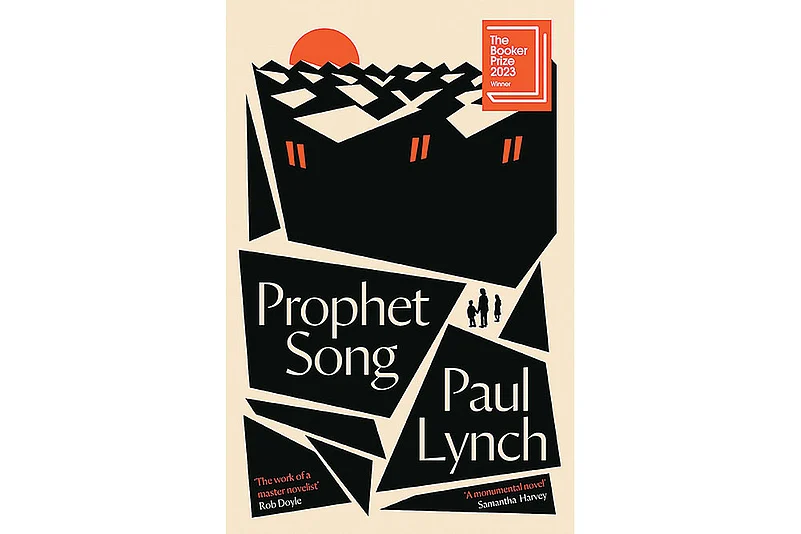
What do you think is your responsibility as a writer? Do you think of fiction as something that holds a mirror to society or does it hammer it down?
I don’t think that a writer has any political responsibility. I think that fundamentally, the job of fiction is to articulate the strangeness and the complexities of life. If you read the great literature, you will discover that it’s full of wisdom. So, the true responsibility of the series writer is to mine for human truth, to search for human truth and explore what defines us throughout the ages. What is it that makes a human being? What’s the stuff that we are made from? If we can articulate that, then we will know who we are in the world.
“What I’ve noticed is that there’s a lot of anxiety in India about the future. The book seems to be communicating something to Indian readers, which is fascinating for me”
What makes Prophet Song a local event? Do you also see a semblance of what you have written in your book here in India?
What I’ve noticed is that there’s a lot of anxiety in India about the future. There’s a lot of fear about values changing for the worse. The book seems to be communicating something to Indian readers, which is fascinating for me because I’m just a writer from Dublin—I sit in a room, and I close the door, and I mix, I make stuff up. But this book seems to have the ability to communicate with people from all around the world. When I was in London, I met somebody from Ukraine. She said to me, ‘your book, you told our story’. Then the next night, I met somebody from Palestine, and she said the very same thing. That seems amazing to me. You know, this is the thing about the power of fiction; that the closer you can get to myth, the more the weight that story can hold within it. Prophet Song does have a mythic quality to it. I don’t say when it is set; I don’t define it with a lot of detail to make it the now. There’s room within that book to be a little bit timeless. So I’m always interested in universal values. I’m interested in human truths. What does it mean to be a human being? What does it mean to suffer? How do we define ourselves when we are met with profound difficulties? All my books are about this stuff. But somehow, there’s a political dimension to this book that seems to resonate. That’s not something you set out to do. That’s not something you make a choice to try and capture the zeitgeist. If you strain to capture the zeitgeist, the book will be a failure.
Prophet Song reminds me of the system of Gyres. A certain idealism also runs through it. You routinely talk of bearing influence from Keats’ negative capability, which is yet another idealism. Do you also try to induce hope through your writing?
I don’t think about hope. I don’t think that’s my job. I like the idea that inducing hope is something my characters do. Because it’s a default activity—we wake up, and we hope to presume that life’s going to be good today. When we’re met with difficulty, we hope that things will improve. But I think that negative capability is very useful for a writer because the truth is that life is blind. We don’t know anything, most of the time. We overestimate our intelligence, we overestimate our knowledge of events, and we completely underestimate complexity. We move through the labyrinth, all the time. Life is elaborate. I try to give form to that in my stories, to shape narratives that can actually convey the sense of the labyrinth, the sense that we are blind, and that the world is truly unknown, unknown to us. And, you know, it goes back to the Greeks. In many ways, Eilish is almost Greek in that she’s constantly making decisions to try and outmanoeuvre the fates. But what’s taking place around her is far beyond her powers and comprehension, and this is something that I’m always interested in. That sense of human agency within the vast and different world. The fact that we as human beings are always trying to find our lives, we’re trying to find meaning for who we are. But the world around us is silent, it is indifferent, and it doesn’t give a damn. And how do you reconcile these two things? The modern world is defined by individuality. And yet, every so often, all of us will have an encounter with reality.
MORE FROM THIS ISSUE
Pranavi Sharma is a Delhi-based art and culture writer
(This appeared in the print as 'The Events In The Book Are Happening Somewhere In The World Right Now')


